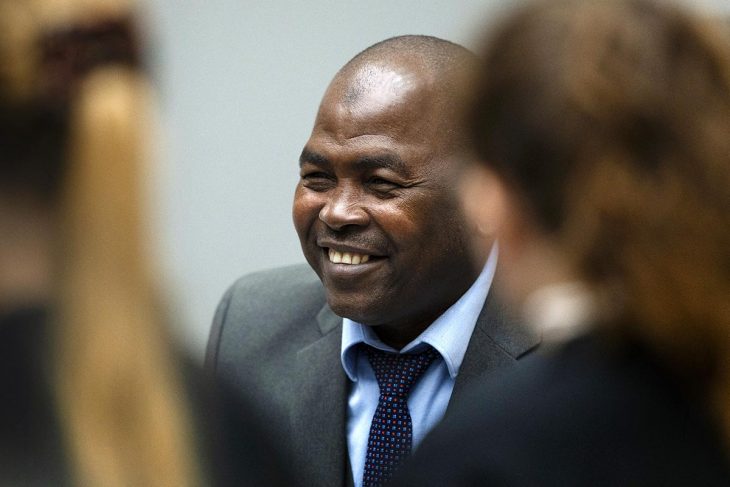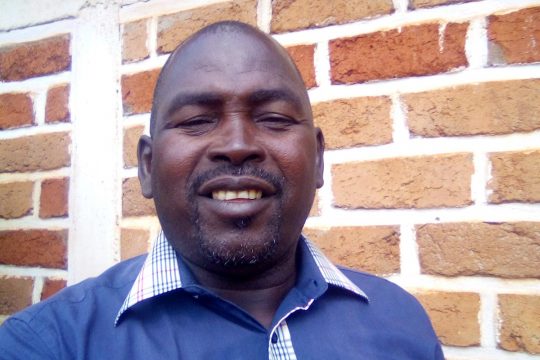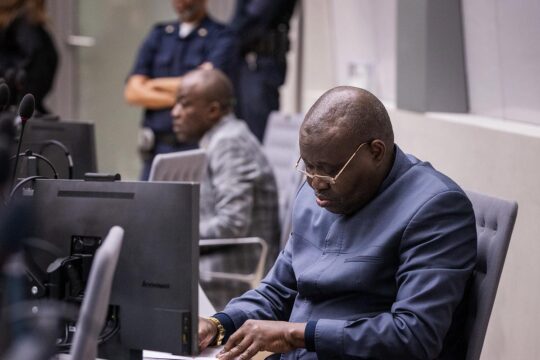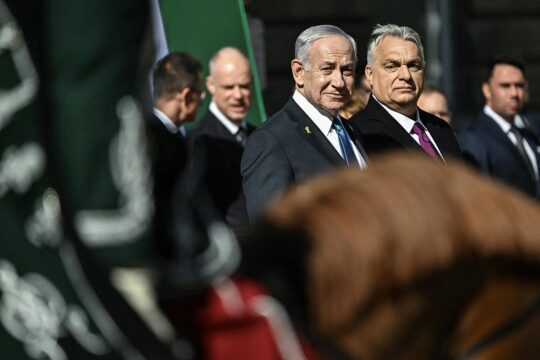In a new trial started in September before the International Criminal Court (ICC), Mahamat Said is facing charges of war crimes and crimes against humanity. The Central African national, handed over by his country in January 2021, is accused by prosecutor Karim Khan of having been “a senior Seleka colonel operating in [the capital] Bangui” and a “de facto head of the Central Office for the Repression of Banditry, the ‘OCRB’, effectively putting him in charge of this police unit, including all Seleka who were stationed there”.
The document containing the charges argues that the opposition to president Bozizé formed a coalition of “several previously uncoordinated political factions” known as the Seleka and that it possessed “sufficient characteristics to establish that it was an organised armed group, including possessing an ability to carry out military operations, and to take whole territory, and having significant logistical capacity.” In 2013, “the Seleka committed a widespread and systematic attack against the civilian population in Bangui perceived to be Bozizé supporters. The Seleka engaged in a course of conduct that involved (…) multiple acts of murder, rape, torture, imprisonment, persecution and other inhumane acts,” reads the indictment.
The hole of terror, at the OCRB
At the opening of the trial on September 26, Khan told the court that the Seleka ruled Bangui from March to November 2013 “by dictate, by fear, by terror, and they targeted individuals that they perceived as being on the other side, not because they were combatants, but simply because they believed they were on the side of former President Bozizé” and that “Mr Said wielded immense power”, as the man in charge of the OCRB.
Said controlled the facility and inside his office “literally under his feet”, according to Khan, “he put civilians in a space called the hole. In that hole, civilians were kept in really putrid conditions, filth around them, their own faeces, stale air, lack of ventilation; treated not as humans, not even as animals, a class below.”
“Witness after witness will testify that they came out from those cells, not for fresh air but for beatings, beatings with all kinds of instruments, gun butts, whips,” Khan continued during the opening session. He also focused on the arbatachar method of torture where a person's hands elbows and feet are tied together behind their back in a way that strains every ligament. A protected witness “P-3338” will testify that Said told him, "The arbatachar method was the best way, was the best way to secure confessions,” quoted Khan.
“Nothing but a fantasy”
But at the opening, Said’s defence described the case as being built on a “biased and sketchy narrative”.
At the confirmation of charges hearings and again at the opening of the trial in September, the defence has disputed every element of the prosecution’s thesis. Saying there was no non-international armed conflict, after Djotodia had taken power, but rather “chaos” and “criminality, extreme criminality” according to lead counsel Jennifer Naouri. She describes the Seleka alliance as a collection of “opportunistic” groups and asks: “Why did the prosecution not explain what the structure of the group was? How were orders passed down? To whom? How did the chains of command work?”
She suggests that “by choosing to ignore these elements, the Prosecution can ignore (…) the internal power struggles within these groups and does not need to be confronted with the fact that these groups were at the very best a nebula of malcontents.”
As for the OCRB, it was merely a police station, albeit “short-staffed” where Said worked under a superior, essentially with volunteers “who assisted him in a situation of chaos and banditry”, said Naoury. “The OCRB was a dysfunctional place without any structure, and thus, it cannot be presupposed that Mr Said was on a de facto basis responsible for everything that happened there, particularly since the evidence reveals that many people were there taking action on a personal basis.”
Naouri points out one particular witness, protected under the code name “P-0234”, who was dropped from the prosecutor’s list and was “someone who was in a very good position and fully in a position to know. He said this: ‘Ask me who was in charge of the OCRB. That's difficult to say, because it was always changing.’ The reality is that the OCRB was completely disorganised”, she continued during the opening session.
She paints the picture of an alliance that fell apart after taking power, with no evidence that a state policy of persecution. “What you are being told is nothing but a fantasy”.
“They will testify from the shadows”
Co-defence counsel Dov Jacobs criticized a lack of documentary evidence, and use of hearsay witnesses. The “prosecution is hoping to hide the weakness of its evidence by holding an opaque trial,” he said, adding that “75 per cent of them will be heard over video link and not in person. And 80 per cent will benefit from protective measures that will hide their identity and make them anonymous.”
The prosecution was planning at the start of the trial to introduce evidence from 102 witnesses, of which 30 would appear ‘viva voce’ before the court. It will make it “impossible for external observers to follow” he continued, “a trial in which evidence is taken at face value and their witnesses will be taken at face value. They will be believed. No adversarial debate. They will testify from the shadows.”
Of the first 12 witnesses, 10 have testified behind closed doors. Two Central African nationals, however, described by prosecutor Khan as “insiders” have been testifying in public. Jean-Claude Sophil a former OCRB official spoke about the structure of the OCRB, how the police had to follow Said’s orders and alleged mistreatment of prisoners. Benjamin Malo, a subordinate of Said’s, described how Said collaborated with other members of the Seleka and how Said decided who was to be investigated and who was to be presented to the prosecutor.
From the Gbagbo case to Said's
It was a tremendous relief to justice activists in CAR that the ICC put a member of the Seleka on trial, after The Hague started in 2021 with two from the opposing side, anti-Balaka representatives Alfred Yekatom and Patrice-Edouard Ngaïssona.
Said was transferred to The Hague’s custody by the local authorities in Bangui. Even though many promises have been made by the political leadership on the need for justice for the victims and the need to stop the cycles of impunity, “there can be a reluctance to act” says Alice Banens who is monitoring the work of the Special Criminal Court, a hybrid court based in Bangui, for the NGO Amnesty International.
The defence team for Said already has the experience it gained during the trial of former Ivory Coast president Laurent Gbagbo, where the presiding judge criticised the prosecution for “relying on shaky and doubtful bases, inspired by a Manichean and simplistic narrative of an Ivory Coast depicted as a ‘polarised’ society where one could draw a clear-cut line between the ‘pro-Gbagbo’, on the one hand, and the ‘pro-Ouattara’, on the other hand.”
Having won one of the ICC’s most prominent and symbolic case, Naouri and Jacobs seem determined to use mirror arguments to get the case of Said thrown out.








